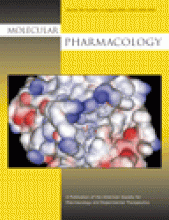Abstract
Once bound to methylated CpG sites, methyl-CpG-binding protein 2 (MeCP2) is thought to silence transcription of downstream genes by recruiting a histone deacetylase (HDAC). Mutations within the MeCP2 gene have been found to cause Rett syndrome, a disorder of arrested neuronal development. Using immunohistochemistry, we found that Mecp2, as well as the methyl-CpG-binding protein MBD1, were significantly induced in normal adult rat brain after repeated injections of fluoxetine or cocaine for 10 days (one injection per day). Mecp2 was not induced by repeated injections of 1-(2-bis(4-fluorphenyl)-methoxy)-ethyl)-4-(3-phenyl-propyl)piperazine (GBR-12909) or nortriptyline. Together, the data indicate that the serotonergic system is predominantly involved. Using real-time reverse transcription-polymerase chain reaction experiments, MBD1 mRNA and both Mecp2_e1 and Mecp2_e2 transcripts were found to be induced by fluoxetine. Induction of the methylbinding proteins was accompanied with enhanced HDAC2 labeling intensity and mRNA synthesis in response to fluoxetine. In tandem, acetylated forms of histone H3 were found to be decreased. The effect was characterized in three serotonin projection areas, the caudate-putamen, the frontal cortex, and the dentate gyrus subregion of hippocampus. Our data highlight GABAergic neurons as major target cells expressing Mecp2 in response to the serotonin-elevating agents and suggest that serotonin signaling enhances gene silencing in postmitotic neurons.
- Received January 9, 2006.
- Accepted May 2, 2006.
- The American Society for Pharmacology and Experimental Therapeutics
MolPharm articles become freely available 12 months after publication, and remain freely available for 5 years.Non-open access articles that fall outside this five year window are available only to institutional subscribers and current ASPET members, or through the article purchase feature at the bottom of the page.
|






